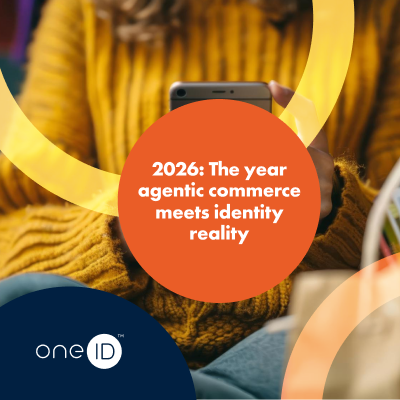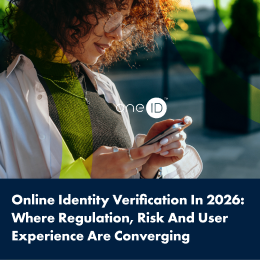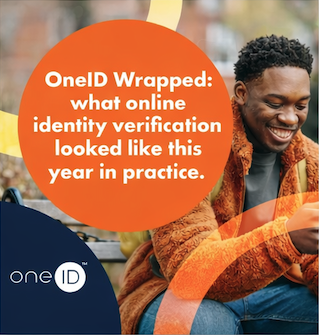As sales increase for online retailers, those selling age-restricted goods and services face heightened challenges and responsibilities. The pandemic has accelerated the speed at which people have moved online and, the spotlight on retailers to get age verification right is intensifying.
Think about the sheer amount of grocery deliveries in the past two years. Not just from big retailers – who rapidly increased their delivery capability in response to the pandemic – but also the new instant grocery delivery services that have exploded in popularity over the past year.These deliveries often include beer, wine, spirits, kitchen utensils, cigarettes, medications, (to name a few), all of which are age-restricted sales.
With a reported $14bn total investment into instant grocery delivery since the beginning of the pandemic, it is easy to see why digital age verification for online purchases is deserving of some extra attention.
Currently, research shows that existing online age verification processes are ‘far from adequate’. For example, most retailers studied had little or no ‘age gating’ on their sites to stop minors purchasing alcohol, and those who did were utilising age gating systems that could easily be bypassed.
And it’s not just alcohol.
There are many age-restricted services being accessed by youngsters too.
Online gambling has increased in popularity in recent years, even more so over lockdowns. Worryingly, 36% of children aged 11-16 reported having spent money on gambling, exemplifying the immediate need for better online age verification.
Mounting concern from parents is not to be ignored, and regulators have already turned their attention to the safety of minors online.
Just last month, the grace period for complying with the Age Appropriate Design Code came to an end, meaning companies without appropriate safeguards to protect underage customers could be fined up to £17.5 million or 4% of annual turnover.
New sections of the Offensive Weapons Act also came into play in July, with further controls to be introduced later in the year that will bring higher online safety standards for the sale and delivery of dangerous goods.
On the subject of enforcement, in June of this year a group of online retailers were fined just under £180,000 following a test purchasing programme run by the National Trading Standards.
During the programme, a volunteer 13-year-old was able to purchase dangerous age-restricted items such as knives 41 times out of 100 attempts. In many cases, no age verification was asked for, and in others, the volunteer provided their true date of birth and was still sold the product.
Iain Corby, Executive Director of the Age Verification Provider’s Association (AVPA) commented, “As we return to business as usual, we should expect to see licence officers and regulators paying significant attention to online retailers who aren’t following the rules. After an unprecedented period for everyone, things previously able to fly below the radar may not stay that way for much longer”.
In the past, retailers have struggled not only to meet rules and regulations but also in finding solutions that provide the protection needed.
For too long, age checks have either been unreliable, for example, self-declaration tick boxes, or clunky and difficult for consumers to use.
However, developments in digital identity technology mean that ready to use, easy to implement, and regulation-compliant solutions are now available.
What is more, innovation in this sector means retailers need not compromise on smooth customer journeys to achieve secure age verification.
Accurate age data already exists, held by banks on their customers, and a digital identity solution, utilising Open Banking, exists that enables individuals to use that data to prove their age online.
Being proactive in implementing these new age-check methods will help businesses in the long run, says Iain Corby. “Take the Offensive Weapons Act, for example, new provisions set to come in later this year will create big challenges for retailers selling goods such as knives and tools, or else face prosecution. Retailers in other age-restricted industries should take note and recognise that taking action to protect underage customers now may help to avoid the introduction of such rigorous regulations in their own industries and the resultant cost impact to their business model”.
Acting sooner rather than later, to make sure customers are the age they claim to be, is surely the way forward for online businesses.
Those who remain passive are missing out on protecting themselves, both from prosecution and increased regulation, their reputation, and most importantly – protecting their customers.
The responsibility for protecting minors now lies with retailers themselves, and with such comprehensive solutions available, inaction is not an option.
Originally published in the BRC’s Magazine, The Retailer – Autumn 2021
Interested in Age Verification? We held a webinar with an expert panel, discussing all the things you need to know for 2022 if you sell age-restricted products. You can watch the webinar in full here, or read the highlights on our blog.

Agentic commerce is already operating inside live retail, payments, and platform environments. For Partn...

Online identity verification entered a new phase in 2025. Across adult platforms, gambling, financial se...

Last month, we joined Turnkey for an industry event to talk about a challenge many regulated platforms a...

2025 has been a year of continued growth and real-world proof for OneID®. As expectations for identity a...